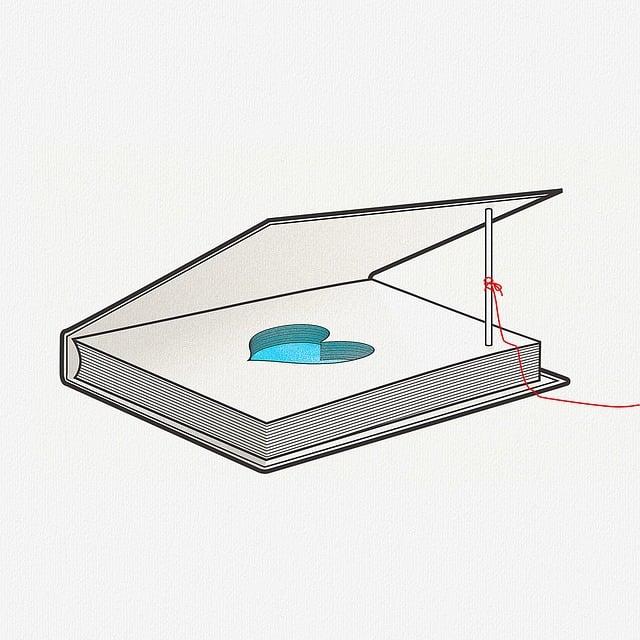Are you grinding your teeth unknowingly at night? Find out how bruxism – and potential cavities – can affect your smile and what to do about it.
1. Understanding the Connection: Bruxism and Cavities Explained
Bruxism, commonly known as teeth grinding, is a condition that affects many individuals without them even realizing it. It is characterized by the grinding, clenching, and gnashing of teeth, often occurring unconsciously during sleep or even during the day. Bruxism can have several causes, such as stress, anxiety, misaligned teeth, and even certain medications.
One lesser-known consequence of bruxism is its connection to cavities. When teeth grinding occurs, excessive force is exerted on the teeth, wearing down their protective enamel layer. As the enamel weakens, it becomes more susceptible to tooth decay and cavities. Moreover, the repetitive friction between the teeth during grinding can create small cracks or chips, providing a perfect breeding ground for bacteria and further increasing the risk of cavities.
- Teeth grinding can lead to the destruction of tooth enamel, making it easier for cavities to develop.
- The constant pressure and friction during bruxism can cause cracks or chips in the teeth, creating a favorable environment for bacteria growth.
- Cavities resulting from bruxism often require dental treatment, such as fillings or even root canals, to restore the affected teeth.
To prevent cavities associated with bruxism, it is important to address the underlying cause of teeth grinding. Dentists can provide custom-made mouthguards or splints to protect the teeth from grinding during sleep. Additionally, stress-reducing techniques, lifestyle changes, and orthodontic interventions may be necessary to alleviate bruxism and reduce the risk of cavities.
2. The Dangers of Bruxism: How Teeth Grinding Can Impact Oral Health
Teeth grinding, also known as bruxism, may seem harmless at first, but it can have serious implications for your oral health. The habit of clenching or grinding your teeth, often during sleep, can lead to a variety of dental complications that shouldn’t be ignored.
Here are some ways in which bruxism can negatively affect your oral health:
- Wear and tear on tooth enamel: The constant grinding motion can gradually wear down the protective layer of enamel on your teeth, leaving them more vulnerable to decay, sensitivity, and cracks.
- Tooth damage: As bruxism intensifies, it may lead to fractures, chips, or even the loosening of teeth. These issues not only affect the appearance of your smile but can also compromise the functionality of your teeth.
- Jaw problems: Persistent teeth grinding can strain the jaw joint, causing pain or a condition known as temporomandibular joint disorder (TMJ). TMJ can cause difficulty in opening or closing the mouth, headaches, and facial pain.
Recognizing the dangers of bruxism is crucial in maintaining your oral health. If you suspect you may be grinding your teeth, consult with a dental professional who can provide guidance and recommend suitable treatment options to mitigate the impact of bruxism.
3. Unveiling the Link: The Relationship Between Bruxism and Tooth Decay
Bruxism, commonly known as teeth grinding, is a prevalent oral condition that affects both children and adults. While it may seem harmless, studies have indicated a strong correlation between bruxism and tooth decay. Let’s explore the intriguing link between these two oral health concerns.
Recent research has shed light on the destructive effects of bruxism on tooth enamel. The constant grinding and clenching of teeth can wear down the protective layer of enamel, leaving the teeth vulnerable to decay. Additionally, the excessive forces exerted during bruxism episodes can weaken the tooth structure, leading to cracks and fractures that further facilitate the entry of oral bacteria.
But how exactly does tooth decay occur as a result of bruxism? Here are a few key points to consider:
- Reduced saliva flow: Bruxism can cause a decrease in saliva production, which plays a crucial role in maintaining oral hygiene. Saliva helps neutralize acids, remineralize tooth enamel, and cleanse bacteria. With less saliva, the protective mechanisms are compromised, making the teeth more susceptible to decay.
- Gum recession: The excessive pressure exerted on the teeth during bruxism episodes can also lead to gum recession. Receding gums expose the tooth roots, which do not have a protective layer of enamel. As a result, these areas become more prone to cavity formation.
- Persistent clenching: Bruxism often involves clenching the teeth together tightly. This sustained force can create small cracks in the tooth structure, providing ideal hiding places for bacteria. Over time, these hidden bacteria can cause cavities to develop, leading to tooth decay.
Understanding the relationship between bruxism and tooth decay is crucial for proactive dental care. By addressing bruxism through proper diagnosis, personalized treatment plans, and the use of dental night guards, individuals can actively prevent tooth decay and preserve their oral health.
4. Bruxism at Night: Why You Shouldn’t Ignore the Harmful Effects on Your Teeth
Bruxism, also known as teeth grinding, is a common condition that occurs primarily during sleep. While it may seem harmless, bruxism can have detrimental effects on your teeth and overall oral health. Ignoring this condition might lead to more serious complications in the long run.
So, what exactly are the harmful effects of bruxism at night? Let’s delve into it:
- Tooth Damage: The constant grinding and clenching of teeth can wear down the enamel, leading to tooth sensitivity, fractures, and even tooth loss. Moreover, it can also damage existing dental work, such as fillings or crowns.
- Jaw Pain and Headaches: Bruxism can exert excessive pressure on the jaw joints, causing TMJ (temporomandibular joint) disorder. This often results in jaw pain, difficulty in opening or closing the mouth, and severe headaches.
- Disrupted Sleep: Bruxism can significantly impact your quality of sleep. The grinding noise can disturb not only your own sleep but also that of your sleeping partner or family members. This can result in daytime tiredness, irritability, and decreased focus.
- Worsening of Existing Dental Conditions: If you have pre-existing dental conditions like periodontal disease or malocclusion, bruxism can aggravate these conditions, making them more difficult to manage and treat.
It is important to address bruxism as early as possible to prevent these harmful effects. Consulting with a dental professional is crucial for accurate diagnosis and guidance on the most appropriate treatment options available. Remember, taking action now can save your teeth from extensive damage and improve your overall oral health.
5. Dental Decay Unmasked: How Bruxism Paves the Way for Cavities
Bruxism, commonly known as teeth grinding, is more than just a bad habit that affects millions of people worldwide. It turns out that bruxism may be a hidden culprit behind dental decay. Research has shown a strong link between bruxism and an increased risk of cavities, as the constant grinding and clenching of the teeth can wear down the protective enamel layer.
So, how does bruxism pave the way for cavities? Here are the key factors:
- Enamel erosion: Bruxism exerts excessive pressure on the teeth, gradually wearing down the hard outer layer known as enamel. As the enamel erodes, the underlying dentin becomes exposed, making the teeth more vulnerable to decay.
- Micro-cracks: The repeated grinding and clenching can create micro-cracks in the teeth, providing a perfect breeding ground for bacteria. These tiny cracks are difficult to clean, allowing harmful bacteria to thrive and eventually lead to cavities.
- Increased tooth sensitivity: Bruxism can cause increased tooth sensitivity, making it uncomfortable to consume hot, cold, or sweet foods and drinks. This may lead to a change in diet, favoring sugary or acidic substances that further contribute to dental decay.
It is important to detect and address bruxism early to prevent dental decay. Dentists can help diagnose the condition and recommend treatment options such as custom mouthguards, stress management techniques, and lifestyle changes. By addressing bruxism, individuals can protect their teeth from cavities and maintain good oral health.
6. Biting Down on the Facts: Bruxism’s Role in Tooth Demineralization
Bruxism, commonly known as teeth grinding, has a significant impact on tooth demineralization, leading to various dental problems. Understanding the relationship between bruxism and tooth demineralization can help individuals take necessary precautions to protect their oral health.
Here are the key facts about bruxism’s role in tooth demineralization:
- Increased wear and tear: Bruxism subjects teeth to excessive force and friction, resulting in the wearing down of tooth enamel. This weakened enamel makes teeth more susceptible to demineralization, making them more prone to decay and cavities.
- Exposure to acid erosion: Apart from mechanical damage, bruxism can also contribute to tooth demineralization by exposing teeth to acids from food and drinks. These acids, combined with weakened enamel, can lead to the erosion of minerals from the tooth structure, causing sensitivity and further decay.
- Impaired saliva flow: Saliva plays a crucial role in maintaining oral health by neutralizing acids and supporting remineralization. Bruxism often disrupts saliva flow, reducing its protective benefits. As a consequence, the demineralization process is accelerated, and tooth enamel becomes more vulnerable to decay.
Recognizing the connection between bruxism and tooth demineralization allows individuals to seek appropriate dental care, such as using mouthguards to protect teeth during sleep or addressing the underlying causes of bruxism. By taking preventive measures, one can mitigate the risk of tooth demineralization associated with bruxism and maintain optimal oral health.
7. Protecting Your Pearly Whites: Tips to Safeguard Against Bruxism-Induced Cavities
Tips to Safeguard Against Bruxism-Induced Cavities
Living with bruxism can take a toll on your dental health, increasing the risk of cavities. Thankfully, by taking a few preventive measures, you can protect your pearly whites and keep cavities at bay. Here are some valuable tips to help safeguard against cavities caused by bruxism:
- Regular dental visits: Make it a habit to see your dentist regularly. Professional dental cleanings and check-ups are crucial for detecting any signs of cavities early on. Your dentist will also advise on personalized preventive measures and provide treatments, such as dental sealants, to protect vulnerable areas.
- Consistent oral hygiene routine: Brush your teeth twice a day with fluoride toothpaste to remove plaque and bacteria. Flossing daily is equally important as it removes food particles trapped between your teeth, reducing the risk of cavities. Consider using a mouthguard specifically designed for bruxism to protect your teeth from grinding at night.
- Monitor your diet: Opt for a tooth-friendly diet that includes plenty of fruits, vegetables, and calcium-rich foods like dairy products. Limit your consumption of sugary snacks and beverages, as they can increase the chance of cavities. Remember to rinse your mouth with water after consuming acidic or sugary foods to neutralize the pH level and prevent tooth decay.
By following these tips, you can effectively safeguard your teeth against bruxism-induced cavities, ensuring a healthy and beautiful smile for years to come.
8. The Right Defense: Discovering Effective Strategies to Prevent Cavities from Bruxism
Bruxism, commonly known as teeth grinding, can wreak havoc on your oral health, leading to serious dental issues such as cavities. Fortunately, there are several effective strategies that can help prevent cavities caused by bruxism. Implementing these simple practices can provide the right defense for your teeth:
- Nightly use of a mouthguard: Wearing a custom-fitted mouthguard while sleeping can help protect your teeth from the damage caused by bruxism. It acts as a protective barrier, reducing the impact of grinding and preventing cavities.
- Maintain good oral hygiene: Regularly brushing your teeth twice a day with fluoride toothpaste and flossing daily is crucial to keep your teeth healthy and cavity-free. Pay extra attention to the areas most affected by bruxism, such as the chewing surfaces and sides of your teeth.
- Visit your dentist regularly: Regular dental check-ups are essential for early detection of cavities and any other dental issues caused by bruxism. Your dentist can provide professional advice and treatments tailored to your specific needs to prevent further damage.
- Manage stress: Bruxism is often associated with stress and tension. Practicing stress-reducing techniques can help alleviate teeth grinding, ultimately reducing the risk of cavities. Consider activities such as yoga, meditation, or engaging in hobbies you enjoy.
- Avoid or limit triggering substances: Consuming excessive amounts of caffeine, nicotine, and alcohol can exacerbate bruxism. Limiting their intake or completely avoiding them can contribute to a healthier oral environment, reducing the likelihood of cavities.
By following these effective strategies, you can take proactive steps towards preventing cavities caused by bruxism. Protecting your teeth from the damaging effects of grinding is essential for maintaining optimal oral health.
9. Seeking Dental Shield: How Dentists Can Help You Combat Cavities Linked to Bruxism
Bruxism, commonly known as teeth grinding or clenching, can wreak havoc on your oral health. In addition to wearing down tooth enamel and causing jaw pain, bruxism is closely linked to an increased risk of cavities. Fortunately, dentists are equipped with effective strategies to combat cavities caused by bruxism and protect your teeth.
One of the most effective ways dentists can help combat cavities linked to bruxism is by recommending a dental shield, also known as a nightguard or occlusal splint. A dental shield is a custom-made device that fits over your teeth to provide a protective barrier between the upper and lower jaws. By wearing a dental shield while sleeping, the pressure and friction from grinding or clenching are absorbed by the shield instead of your teeth, reducing the risk of enamel erosion and cavities.
Furthermore, dentists can educate patients on proper oral hygiene practices to combat cavities caused by bruxism. Regular brushing with a soft-bristled toothbrush and fluoride toothpaste, along with daily flossing, should be a part of your dental routine. Dentists may also recommend using fluoride mouthwash to strengthen enamel and combat cavity formation. Additionally, maintaining regular dental check-ups and cleanings is essential in preventing and detecting cavities early on.
10. Smile Saver: Early Intervention for Bruxism Ensures a Cavity-Free Future
Bruxism, commonly known as teeth grinding, can wreak havoc on your smile if left untreated. Fortunately, early intervention is the key to ensuring a cavity-free future. Here’s why addressing bruxism from the start is crucial:
- Preserving Tooth Enamel: Bruxism can lead to the wearing down of tooth enamel, the protective layer that shields your teeth from decay. By addressing it early on, you can significantly reduce the risk of enamel erosion and maintain a healthier smile.
- Preventing Tooth Sensitivity: Grinding your teeth can cause sensitivity to hot and cold temperatures. By seeking early intervention for bruxism, you can prevent this discomfort and enjoy your favorite foods and beverages without worry.
- Avoiding Dental Damage: Continued teeth grinding can result in chipped or fractured teeth, leading to potential dental complications and the need for restorative procedures. Nipping bruxism in the bud can prevent such damage and save you from unnecessary dental treatments in the future.
With professional guidance, you can manage and treat bruxism effectively, minimizing its impact and ensuring a long-lasting, cavity-free smile. Remember, prevention is always better than cure when it comes to dental health!
In conclusion, bruxism can indeed contribute to cavities. Protecting your smile means addressing underlying causes, using a mouthguard, and maintaining good oral hygiene. Stay vigilant and proactive in preserving your dental health!






